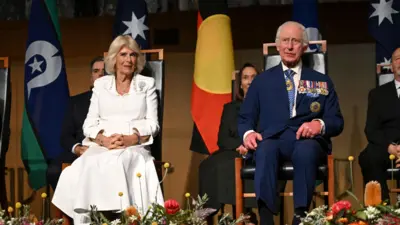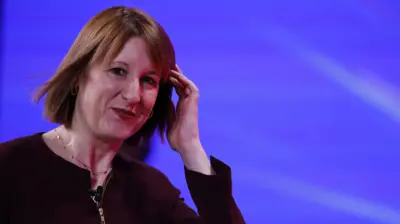We've updated our Privacy and Cookies Policy
We've made some important changes to our Privacy and Cookies Policy and we want you to know what this means for you and your data.
Warning of Church departures after women bishops vote
A leading traditionalist has warned it is "inevitable" people will leave the Church of England after it voted to move ahead with allowing women bishops.
Bishop John Broadhurst, who is on the Church's Catholic wing, told the ΒιΆΉΤΌΕΔ's Today programme other opponents would stay in the Church but "defy" the move.
However, Rachel Weir of the pro-women bishops group Women and the Church, said it was a "momentous" decision.
The general synod will make a final vote on the issue next year.
Minimal concessions
The general synod - which comprises bishops, clergy and lay people - decided by a vote on Monday that there was no need for further delay to the progress of a draft law allowing women to be ordained as bishops.
It gave minimal concessions to traditionalist Anglicans who had opposed the move.
They had sought exemptions from serving under women bishops, and guaranteed access to a male alternative acceptable to them.
But the general synod decided women bishops should be able to decide the identity of any bishop working in their dioceses.
They would also have the ability to dictate the functions these bishops could carry out.
The ΒιΆΉΤΌΕΔ's religious correspondent Robert Pigott said women bishops would have only to consult a code of practice guiding them in their dealings with traditionalists.
However, it still remains a possibility that the proposed move to allow women bishops will be defeated.
Before the issue returns to the general synod next year, it must first receive approval from a majority of the Church's 44 diocesan synods.
It must then receive a two-thirds majority in each of the three Houses - of Bishops, Clergy and Laity - at the general synod, before receiving parliamentary approval and the Royal Assent.
'Knuckle under'
Bishop Broadhurst, who is the chairman of the Forward in Faith organisation, declined to say whether he would leave the Church of England, because he said he needed time to talk to the priests under his pastoral care.
"My organisation has 1,000 priests and about 8,000 lay people in it. None of those priests are happy," he said.
"Now people have to decide whether they will knuckle under - if they do, that is not a very happy situation for them or the Church - or whether they'll go, or whether they'll just defy it, and I can see that happening with many people."
Ms Weir said many supporters of having women bishops did not understand why it had taken so long for the Church of England to move ahead with ordaining them, but she said the reason for the delay was "to keep as many people on board as we can".
'Live together'
The Reverend Fiona Weaver, an Anglican chaplain, urged traditionalists not to leave the Church of England.
"For me, it's about us learning to live together," she said.
"And there are plenty of us... I have many friends who are clergy who are opposed to the ordination of women.
"But, on both camps, there are people at the extreme end who are quite vicious and for me it's very sad because they are behaving in a very unchristian way."
Failed plan
At the weekend, proposals to create a class of male-only bishops to oversee traditionalist parishes were rejected.
The Archbishop of Canterbury, Rowan Williams, and Archbishop of York, John Sentamu, had put their personal prestige behind the compromise plan, which would have allowed parishes unwilling to serve under a woman bishop to call upon the oversight of a male alternative.
It would also have given that alternative bishop considerable legally-backed independence and autonomy as part of a "joint jurisdiction" over those parishes.
Although the proposal gained a majority of votes in the general synod as a whole, it failed because clergy - who vote separately from lay people and bishops - defeated it by just five votes.
'Vote in doubt'
The Reverend Paul Dawson, spokesman for Reform, the group which represents many evangelical opponents of women bishops in the Church, warned that without the "adequate safeguards" put forward by the two archbishops the final vote in the general synod could reject women bishops.
"Then we would be back to the drawing board, so to speak," he added.
Mr Dawson said that while Reform was opposed to women bishops in principle, it supported the idea of a male bishop being able to operate in a woman bishop's area "without there being any sense of undermining her responsibility".
"There is still a lot of discussion and debate over the best way forward," he added.
Top Stories
More to explore
Most read
Content is not available








